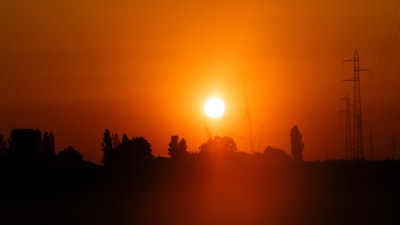Summary
Europe is experiencing an extraordinary heatwave, with France issuing a record number of heat alerts and temperatures shattering historical records across southern and eastern countries. As of now, 84 of France's 96 mainland regions are under orange alert; schools are closed, emergency services are on standby, and authorities in neighboring countries like Spain, Portugal, Italy, Germany, and those in the Balkans are taking similar measures. Dozens of wildfires have erupted, rivers are shrinking, and even the supply chains are feeling the impact. This isn’t an isolated incident—both Spain and Portugal recorded their hottest June days ever, while other nations grapple with temperatures approaching or exceeding 40°C. The UN and climate experts warn that these extremes are a direct result of human-driven climate change, threatening not only public health but also the broader environment and economic stability.
Analysis
The immediate causes of this crisis are clear: a persistent atmospheric heatwave pushed by global warming, compounded by local factors such as drought-parched soils and inadequate infrastructure for coping with extreme temperatures. The impacts rapidly multiply. Health systems are stretched thin by rising cases of heatstroke and hospital emergencies. Economically, commerce and logistics are disrupted—evident in restricted shipping on low waters of the Rhine. Ecologically, the heat catalyzes wildfires and stresses already vulnerable habitats and species.
There’s an important framing in both the official responses and media coverage: these events are not mere weather anomalies, but harbingers of a climate-altered future. Politically, this heatwave sharpens debates on mitigation, adaptation, and justice—how should governments balance immediate protection (closing schools, deploying medical staff) with funding long-term changes (overhauling energy systems, updating infrastructure for resilience)? Inevitably, these extreme events intensify calls for decarbonization, but they also expose inequalities: not everyone has equal access to cooling, safe housing, or health care. The article touches on, but could further explore, the disparate impacts on marginalized groups who bear the brunt of climate hazards.
Though the article mobilizes extensive data and on-the-ground reporting, it treats climate change as a consensus backdrop more than an arena of political contest or lived experience. While stressing official warnings, the narrative could delve deeper into the voices and conditions of those most affected, or on policy inertia and competing priorities (such as economic recovery post-pandemic versus decarbonization imperatives).
Discussion
This heatwave matters because it offers a glimpse into a future that, for many, is already present—a future where centuries-old climate rhythms are overturned by human industry and inaction. Watching Europe, a region with advanced infrastructure and resources, buckle under heat extremes calls into question the preparedness of more vulnerable parts of the globe. Are current adaptation efforts—temporary school closures, market warnings, new alert systems—enough, or merely band-aids on a worsening wound?
Parallels with similar crises elsewhere—in India’s deadly heat spikes, the American West’s wildfires, or Southeast Asia’s flooding—suggest a wider pattern: our interconnected world is running out of safe spaces and times to adapt. There’s also the ethical challenge: how do we distribute responsibility and support for those least equipped to cope, either within wealthy nations or globally? If "unprecedented" becomes the new normal, how might it change the meaning of citizenship, governance, and everyday life in Europe and beyond?
This crisis reveals a truth increasingly hard to ignore: climate change is not only a scientific or technical issue, but a profoundly social and moral one. How we respond—who is protected, whose stories are told, which futures are prioritized—will shape societies for decades to come.

Comments
No comments yet. Be the first to comment!